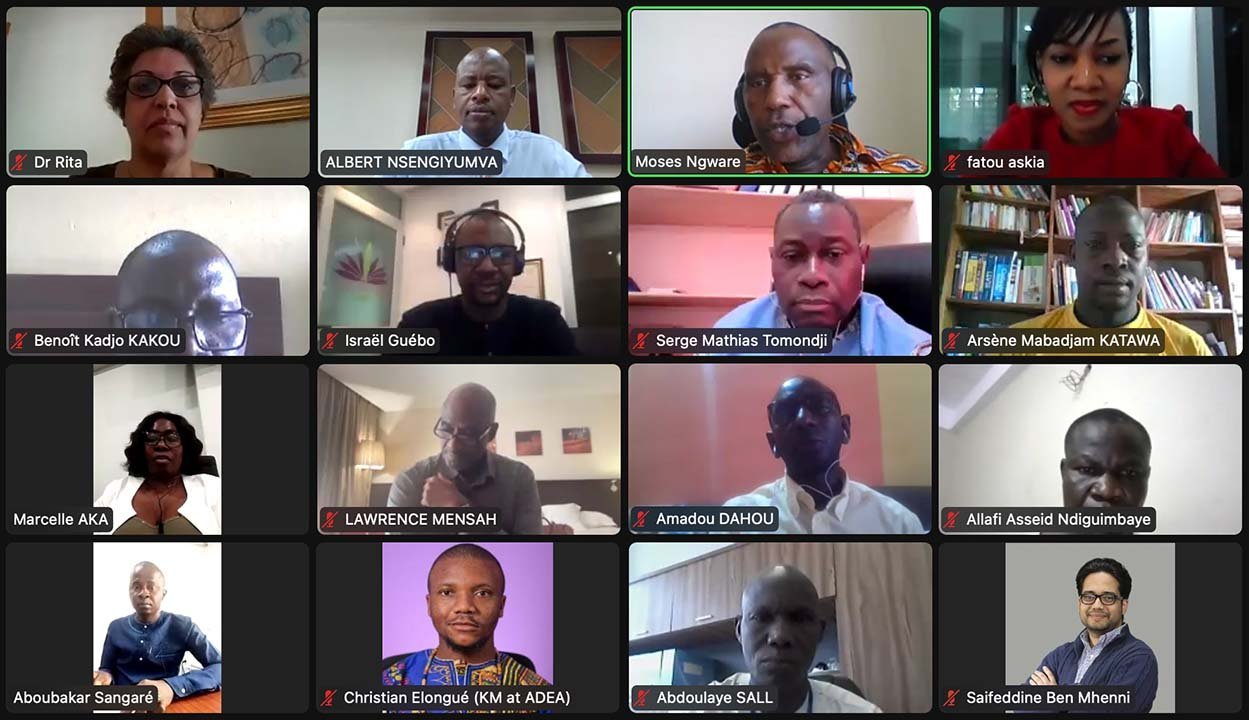ADEA held a virtual press conference to present the KIX Observatory reports on COVID-19

On Tuesday, February 15, 2022, the Association for the Development of Education in Africa (ADEA), in collaboration with the African Union International Centre for Girls' and Women's Education in Africa (AU/CIEFFA), and the African Population and Health Research Center (APHRC), held a virtual press conference to present the KIX Observatory report on teacher training and support in Africa during the COVID-19 pandemic. The conference also provided an opportunity to review previous KIX Observatory reports.
As the primary vehicle for learning, teachers are at the forefront of efforts to help students catch up academically due to the closure of classrooms as part of the COVID-19 barrier measures, while implementing health and hygiene measures to prevent infections in schools. The report examines the challenges teachers have faced since the pandemic began. These include loss of employment and salary during school closures, with female teachers disproportionately affected due to their dual roles of work and home management. At the same time, due to lack of financial resources, a relatively small proportion of teachers have been trained to support distance learning solutions.
The conference brought together about 20 participants, including journalists, bloggers and education specialists connected from West, Central and East Africa and the Middle East.
In his welcome message, Albert Nsengiyumva, Executive Secretary of ADEA thanked the ADEA team and partners APHRC and AU/CIEFFA who made the meeting possible by situating the main focus around the lessons learned from the COVID-19 pandemic in the African education system. He recalled the context of the launch of the initiative known as "KIX Observatory - Knowledge Exchange and Innovations" whose aim is to share policies, practices and challenges faced by countries in their respective responses to the impact of the COVID-19 pandemic.
Speakers at the conference emphasized the importance of building more resilient and sustainable education systems, including investing in unlocking the potential of digital learning solutions and supporting teacher training and well-being. Discussions also highlighted the need to preserve testing systems - a pillar of any strong education system - and the opportunity to engage the private sector in addressing the devastating effects of the pandemic. In the long run, it is a matter of preparing African states to equip their education systems with the tools to deal with any type of crisis beyond COVID-19. To this end, as Albert Nsengiyumva indicated, ADEA has developed three toolkits, piloted in 10 African countries, which can serve as good practice guides in the implementation of norms and standards for the promotion of distance education.
While most African countries have realized the need to invest in tools and resources to facilitate distance education, the inequalities between the working conditions of teachers in rural and urban areas are a hindrance to the harmonization of student learning.
Dr. Rita Bissoonauth, the head of mission at the African Union's International Center for Girls' and Women's Education in Africa, stressed that "all African countries have ensured that they have continuous learning through print, radio and television broadcasts," despite the undeniable challenges of electrification, equipment and Internet access in rural areas. The reopening of schools, according to her, was an absolute and urgent priority to stem and reverse the loss of learning of an entire generation, especially for girls, "almost 25% of whom do not return to school because of early marriage or pregnancy."
Albert Nsengiyumva finally invited the media to engage in highlighting issues related to education, especially in the context of crisis, in order to raise awareness among policy makers.
For more information, please contact:
- Fatoumata Fofana-Askia, Communications Officer, f.fofana-askia@afdb.org
- Cedric Christian Ngnaoussi Elongue, Knowledge Management Officer, c.ngnaoussielongue@afdb.org